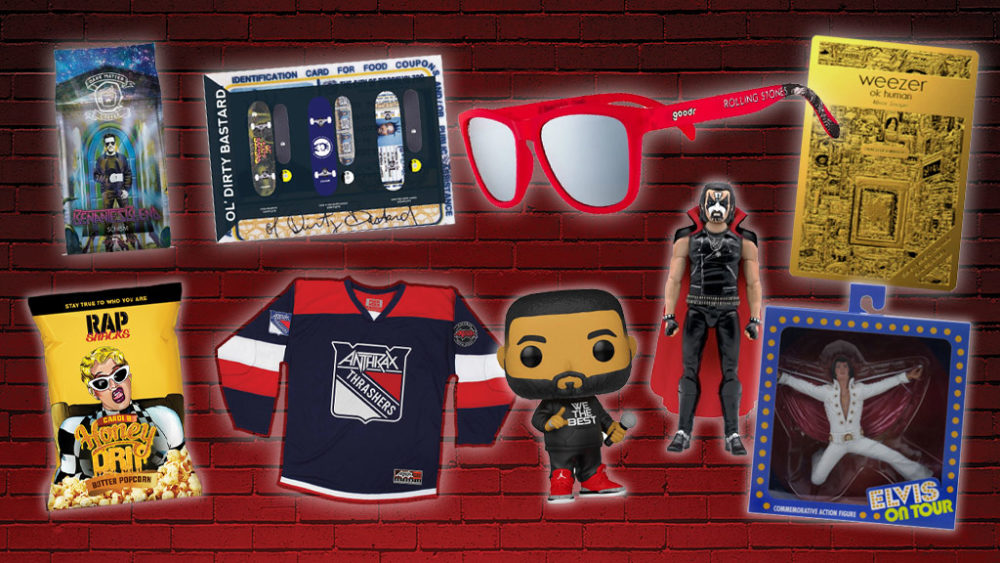
Since the beginning of the rock ‘n roll era, music merch has been big business. From Elvis Presley and The Beatles to Led Zeppelin and KISS, the floodgates opened between the 1950s and ‘70s, creating a licensing industry that took off in the ‘80s and has been growing ever since.
While merchandising began as an additional revenue stream designed to support the release of an album during a tour cycle, ancillary products can now make up the bulk of an artist’s income in an era when releasing an album means practically giving it away for free. According to Business Insider, Spotify pays artists as little as $.0033 per track stream.
“With the demise of selling hard copies of music, we just don’t sell CDs the way we used to,” says Charlie Benante, drummer and one of the principal songwriters of the metal band Anthrax, which is celebrating its 40th anniversary this year. The band has long been a merchandising powerhouse, offering skate decks, T-shirts, hockey jerseys, and, recently, an Among the Living ReAction Figure by Super7. All of those things add up, but Benante says that streaming has created added pressure to increase revenues on the road.
“You have to do a meet-and-greet and a VIP package, which have become common for most bands … the days of going out and getting in trouble on tour have been replaced with more work … you have to be present,” he says.
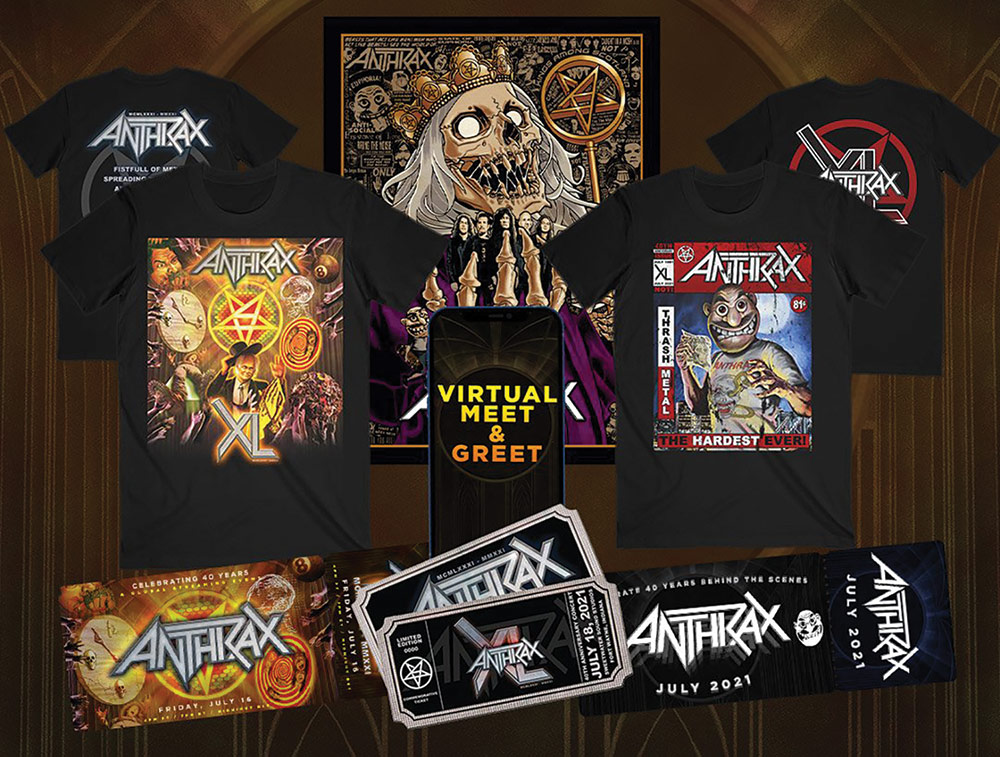
THANKS, PANDEMIC — THE TOUR’S CANCELED!
For the entire industry, the COVID-19 pandemic threw a new wrench in the machine: a complete void of concerts and touring opportunities for much of 2020 and 2021. For the merch makers, that meant new possibilities as new licensors came calling.
“There is no question that the lack of touring has opened up new licensing opportunities for us,” says Bart Silberman, vice president of licensing at Super7, which is serving up new collectibles this year based on the likes of Run-DMC, Motörhead, and Notorious B.I.G. “The music licensors have had to step back and come up with new revenue sources and new ways to connect with their fans. We have seen multiple new artist licenses come through that were off the table just a year ago.”
As artists switched to live-streamed performances, crowdfunding efforts, and limited products including face masks and PPE (see: Anthrax’s Spreading the Disease Hand Sanitizer) to refill the coffers, some of the biggest bands on the planet began teaming up with energetic and enthusiastic new companies to offer products that fans can use to showcase their fandom with style.
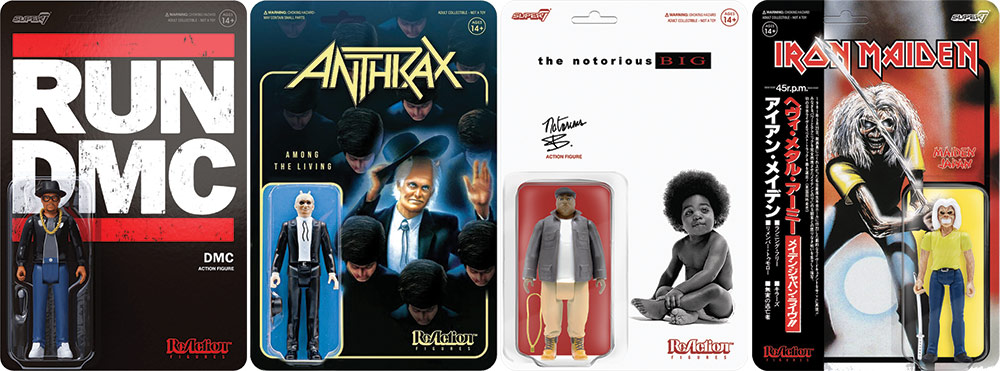
BECOMING THE TREND
Six years ago, Stephen Lease launched goodr with a Kickstarter campaign, a creative title (Chief Executive Octopus), and a mission to “sell fun, not eyewear.” Now, goodr is in business with Mick Jagger and Keith Richards for a collaborative collection of sunglasses that puts a fun spin on some classic albums — and it has cross-generational appeal.
“The Rolling Stones is my favorite band of all time because it is my dad’s favorite band of all time,” Lease says. “It was surreal for this partnership to happen. The most rewarding thing was being able to name a pair [Honky Tonk Donald] after my dad.”
Of course, style needs apparel, and in recent years, the Instagram and TikTok-fueled world of celebrity influencers has thrust several bands into the spotlight at unexpected times.
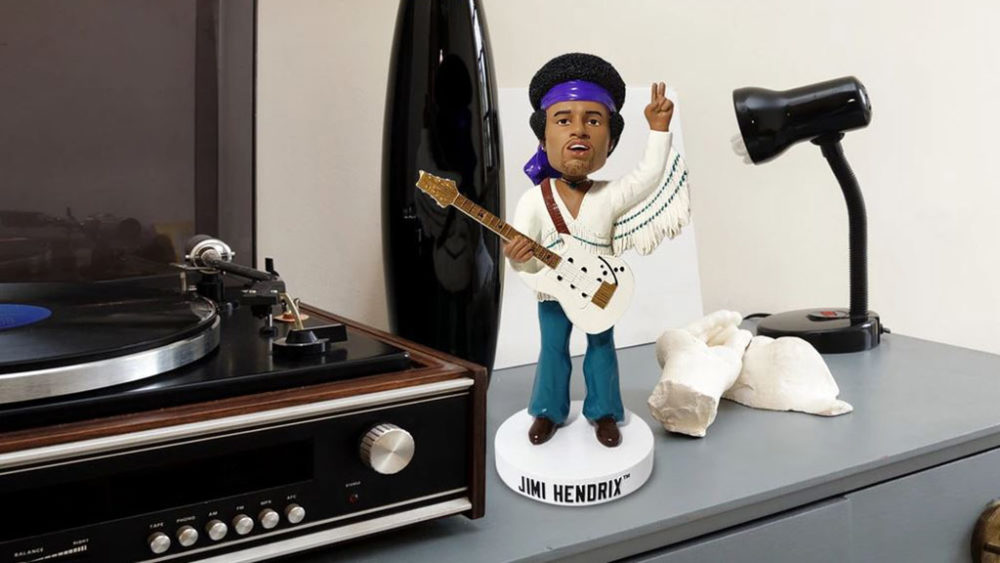
“Anthrax is a brand, and it’s been going for 40 years and it’s become cool at times,” Benante says. “I just recently saw one of the Kardashian girls wearing one of our shirts, and now it’s become trendy. I don’t know if they really know any of our records or our songs, but style-wise — it kinda looks cool and it’s what’s in, but you never know when it’s gonna be in.”
Benante points out that when rock fashion trends spike, companies like Urban Outfitters get in on the action and the $25 concert T-shirt becomes a must-have item with a much bigger price tag.
“It’s a strange thing, this market. They’ll buy a bunch of designs and put them on certain types of shirts, and it just works. It’s overpriced,” Benante says with a chuckle, “but there’s something to be said about that — that people will pay $100 for a T-shirt.”
Still, more products than ever before are accessible at prices that any fan can afford. “You could go to Walmart, Target, or JCPenney and you’ll find products from your favorite rock bands,” Benante says. “It’s so different than it was even 15 years ago.”
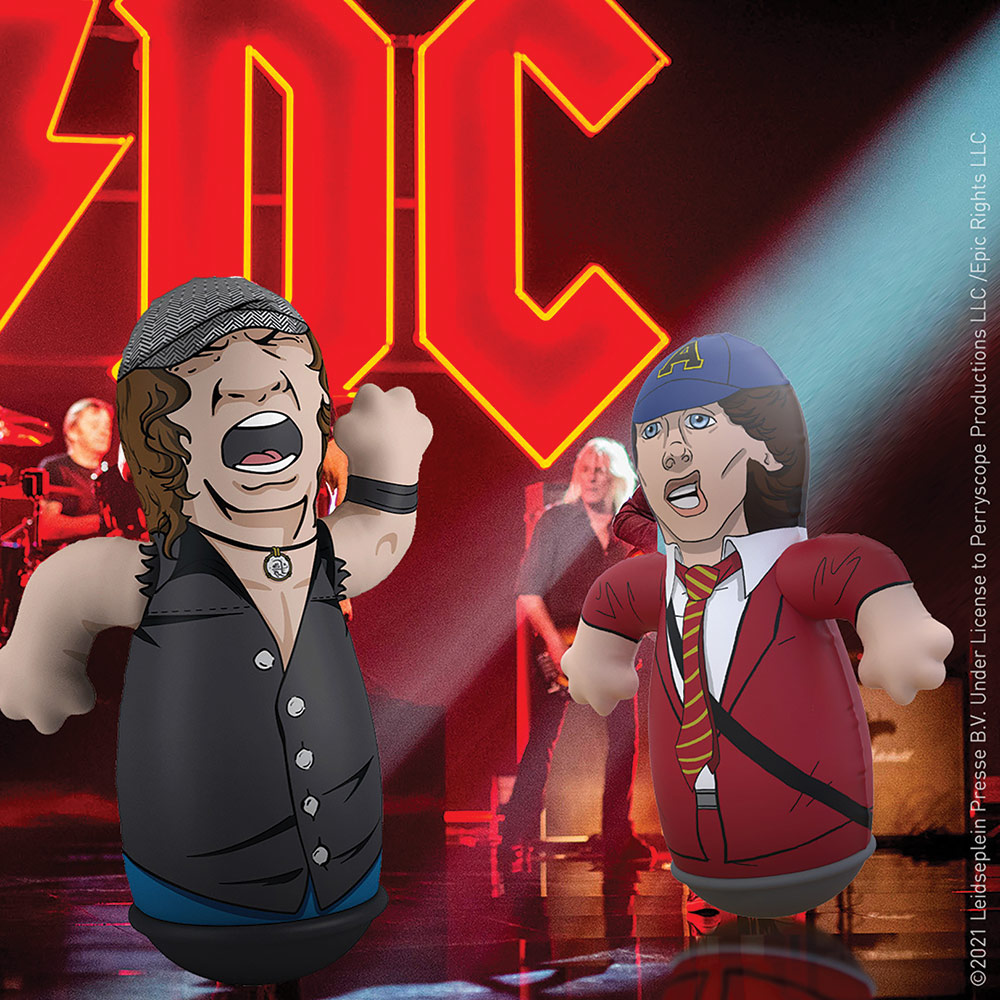
COLLECT ‘EM, DRINK ‘EM, SNACK ‘EM ALL
The music business has long been interwoven with food and beverage. Legendary — and oft-ridiculous — performance riders have put artists’ personal tastes on display, from recipe-specific guacamole for Jack White to special slushies for Kanye West and Van Halen’s “no brown M&Ms” request. But individual tastes have led the jump into legitimate businesses. Years ago, it was themed restaurants like Hard Rock Cafe, Gene Simmons and Paul Stanley’s Rock & Brews, or Jimmy Buffet’s Margaritaville. Now it’s more accessible options such as coffee, beer, wine and spirits, and snacks that are diversifying income streams while connecting with fans in new — and delicious — ways.
Benante teamed up with Dark Matter Coffee for a full range of Benante’s Blend, while the full band has also explored whiskey and beer under the Anthrax brand, as have peers such as Metallica, Megadeth, Iron Maiden, Clutch, AC/DC, and Foo Fighters.
“Coffee is a passion for me — I love coffee — but beer is something we did as a band,” Benante says. “We tested so many different types of beers to develop pairings so that we’d have the right beverage to enjoy with a hamburger or something. A lot goes into this.”
Players in the food space believe that thoughtful planning has to occur and that when it comes to artist collaborations, it’s all about quality and marketing.

“The perfect collaboration starts with an artist that has a cult following,” says Rap Snacks Founder and CEO James Lindsay. “The right artist paired with the right product and the right team is an explosive combination.”
Rap Snacks first launched in 1994 and has gone through several iterations before its phased relaunches in 2017 and 2019, the latter of which saw the brand arrive in Walmart stores across the country with varieties including Cardi B Cheddar BBQ Chips, Lil Yachty’s Hot Cheese Fries, and Migos Sour Cream with a Dab of Ranch — which inspired a viral hit song, “Dab of Ranch.”
Lindsay says that part of the success is partnering with artists whose audiences are familiar with them selling things to authentically connect. He cites Meek Mill and Kanye West as prime examples of top artists who’ve successfully branched out into merchandising programs.
Rap Snacks is branching out as well. Following the success of its first cup noodles range in partnership with Master P, E-40, and Boosie last year, the company inked a deal with Rick Ross this year and just launched Lil Baby Oowee Lemonade. Now, even the snacks are collectible.
“We have fans who collect our packaging all the time,” Lindsay says. “There are people out there who may have every bag we’ve made going back to the ‘90s.”
Silberman believes that the key factor that ties fandom together is passion.
“Music fans and pop culture fans are both super passionate about what they love, and expect a level of detail that transcends the more casual fan,” he says.
Benante agrees and notes that every in-house product or licensing collaboration is done with care. “It’s very important that our fans know that we don’t just slap an Anthrax logo on anything,” he says.
As the world reopens and touring begins again later this year, audiences are expected to unleash their hunger for live music and return to concert venues in droves. Bands will be ready with new gear, as some — including Anthrax — ponder new opportunities for collectibles, including NFTs. No matter what the next trend may be, when it comes to both music and business, Lindsay has an outlook that sums it up perfectly: “When you’re hot, everyone loves you and wants to jump on board.”
This article was original published in Issue No. 10 of the Pop Insider. Click here to read the full issue!
